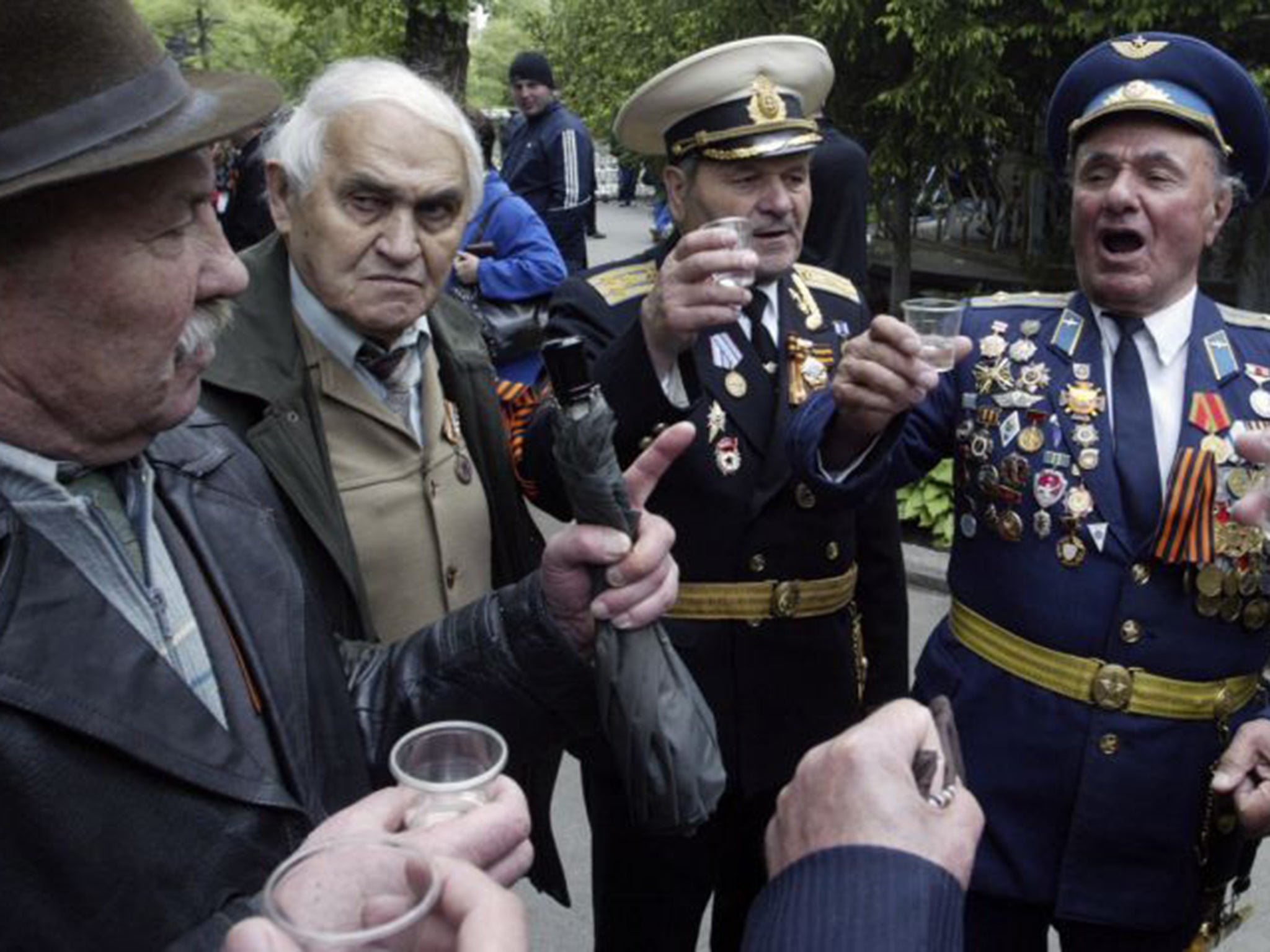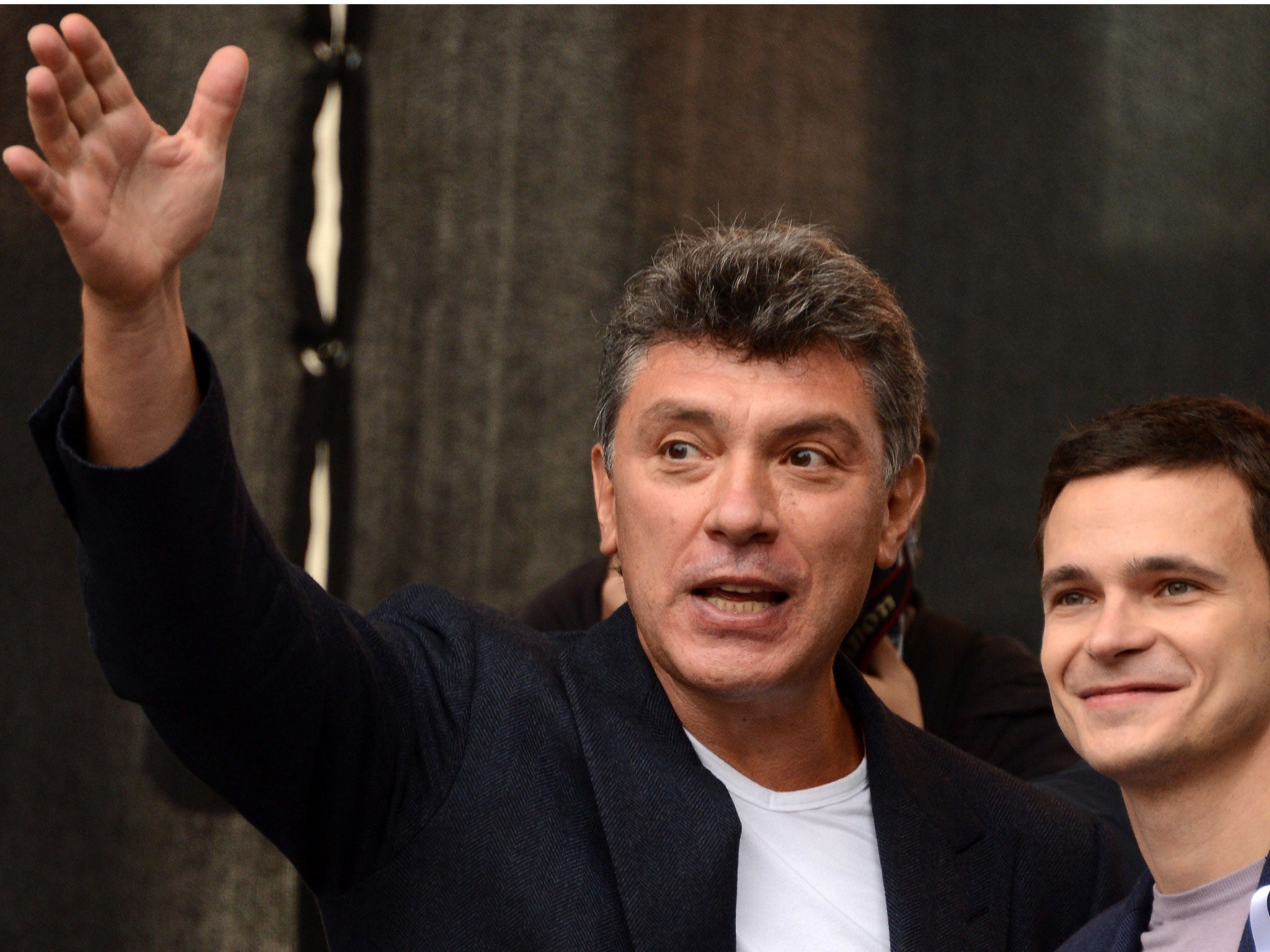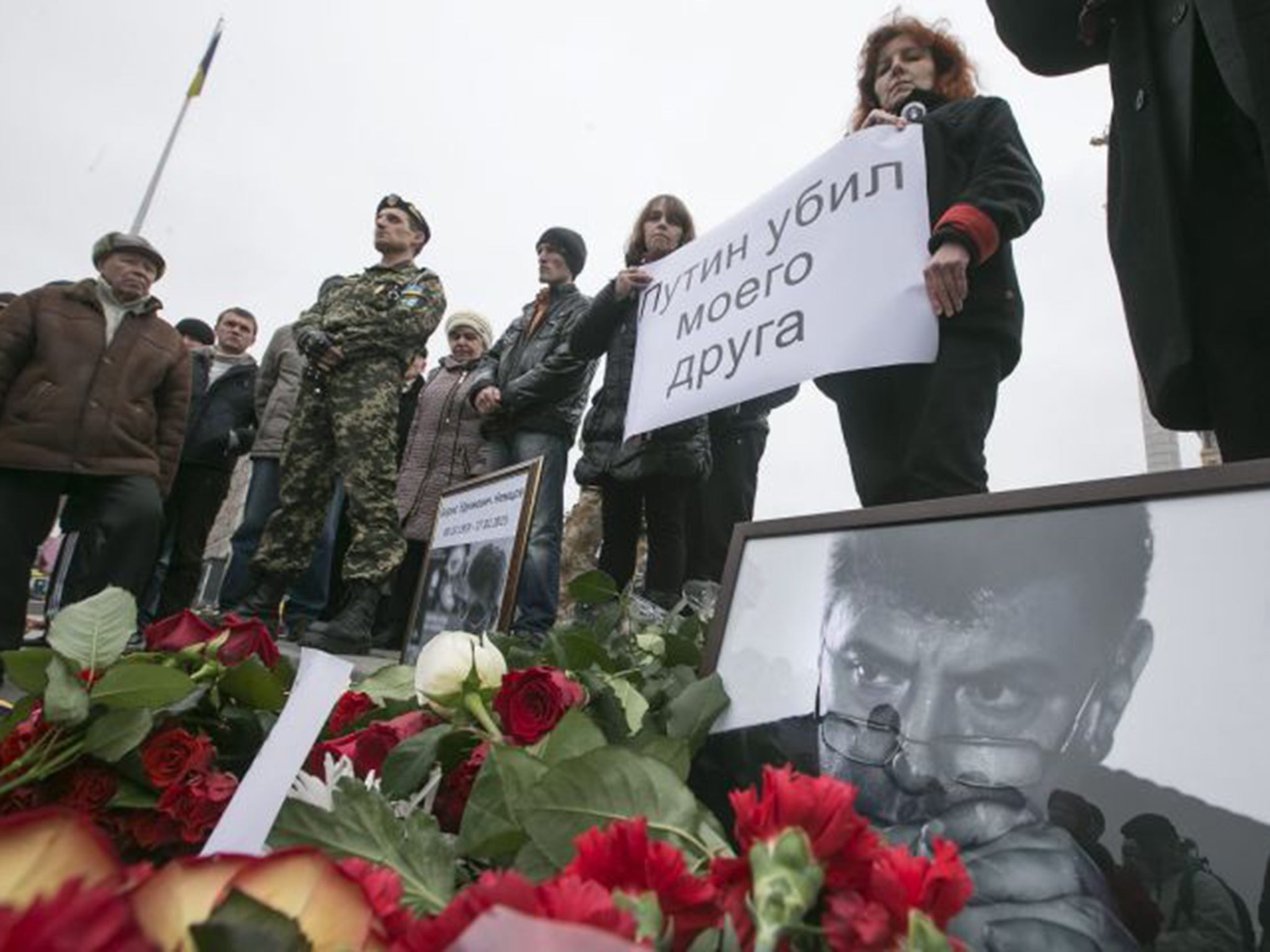Boris Nemtsov shot dead: Another day, another brutal killing in Russia
The West's leaders show little understanding of history, diplomacy and the psychology of a proud country brought low

Your support helps us to tell the story
This election is still a dead heat, according to most polls. In a fight with such wafer-thin margins, we need reporters on the ground talking to the people Trump and Harris are courting. Your support allows us to keep sending journalists to the story.
The Independent is trusted by 27 million Americans from across the entire political spectrum every month. Unlike many other quality news outlets, we choose not to lock you out of our reporting and analysis with paywalls. But quality journalism must still be paid for.
Help us keep bring these critical stories to light. Your support makes all the difference.
The shocking murder of Boris Nemtsov late on Friday illustrates, once more, how worrying Russia has become. Whatever the unpredictability of events on its borders, we are inclined to assume that the autocratic Putin regime enjoys a degree of domestic stability at least. Yet somebody felt the need to send a brutal signal to his leading critics, two days before a major anti-Putin rally. As with so many such episodes, I doubt we will ever know who shot Nemtsov four times in the back, or their motive, but his killing comes at a time of increasing talk of nationalism, traitors in our midst and so on. To question Vladimir Putin, the man who has done so much to restore pride after the “loss” of the Cold War, is unacceptable for many. So, does the West really understand the potency of this Russian nationalism?
For decades, Russians were brought up to believe that theirs was the best society, with the best education, health and culture. In the mid-1990s, despite the currency crash and political upheavals, there was optimism that the Cold War was really over and we could work together. How galling it must have been, therefore, for people to compare their material life styles with those in the West. The grey, uninspiring apartment blocks, poor-quality food and heavy alcohol abuse all conspired to depress the population. Alcohol, of course, was very cheap, which allowed people to drown their dissatisfaction and depression from breakfast onwards. A lack of hope pervaded.
Young men struggled to find work, so gangs and dodgy businesses were paramount. For young women, the options were even less attractive, and many left the country. The feeling of hopelessness, of living for the day, brought an explosion of drug abuse and sexually transmitted disease. Imagine this for a proud nation, coupled with the humiliation of seeing how the West lived, and you begin to understand how a leader with a nationalist drumbeat, and control of the media, can appeal. Here was their chance to resurrect some pride and rebuild.
It was clear, during the Chechnya and Georgia conflicts, that Russia’s army was out of date and chaotic. Recent investment as well as the acquisition of modern military and avionics technology have changed this. During the past five years, there has been a dramatic improvement in the country’s military capability.
It is likely that many Russians feel their leader is standing up for them and the Russian-speaking peoples. However, it is possible his support is not as strong as we hear – but, since he controls so much of the media, we can only guess what people really think.

President Putin can make no legitimate claim to the disputed lands, as Nemtsov was brave enough to point out, but what is not debatable is that Nato is perceived as a huge threat. To Russians, Nato is extending its tentacles to their border and threatening their deep-water Black Sea ports. For years, the President and other Russians have made no secret of their nervousness about this. How can the EU be so blind on this matter? It can only reflect failed intelligence and a serious lapse of Western insight into the Russian state of mind. This does not mean that we can condone Putin’s international activities over the past 10 years, but to appreciate the underlying psychology helps.
Sir John Sawers, former head of MI6, said yesterday: “Putin’s actions are those of a leader who believes his own security is at stake.” Quite so, yet often our diplomacy doesn’t reflect that awareness. Last week, David Cameron endorsed the Nato principle that an attack on one is an attack on all, which applies to the Baltic states. Yes. But what of Ukraine, not a member of Nato? When asked about wars that start because of misunderstandings, Cameron claimed that we had learned our lessons: “We’ve made these mistakes in our history, or talking about faraway countries of which we know little – and it’s not a sensible thing to do.”
What is Putin to make of Western leaders who, in fact, seem to have no understanding of history and who blunder into promising, and giving, support to countries to whom we have no natural allegiance? Some Ukrainians want closer links to the West, others to Moscow, but that should be a decision for them.
To offer an alliance means a real commitment. Are we seriously prepared to go to war for Ukraine against Russia? Has Cameron thought this through? His answer last week redoubled the confusion. Ukraine is closely linked to Russia, with a shared history over centuries. Kiev was the capital of Russia centuries ago. Ukraine has more than 50 million Slavic people, a useful number when Russia has fewer than 150 million. To separate them from Russia was always going to be inflammatory.

The Russians had a dreadful 20th century which ended with the hope of something better. Now their economy and loss of prestige have left them disillusioned but dangerous. The threat of an escalation is very possible, either through a military war or a resources war. European gas supplies look exposed.
It is increasingly clear that we need to keep our defences strong, and we must have an effective nuclear deterrent. I appreciate the goodwill behind a ring-fenced aid budget, but national security must take precedence. In the current climate, the idea of the UK failing to reach the minimum 2 per cent GDP defence spend, to honour our commitment to Nato, is incredible. As Teddy Roosevelt would say, it is best to “speak softly and carry a big stick”.
Maybe Nato should think beyond Ukraine and try to forge some relationship with Russia. This weekend, that seems remote. European Russia could, or should, be part of Europe. Then we would all benefit from a serious bulwark to protect against future threats that are already on the horizon.
Dr Michael Pelly, an NHS doctor, has travelled extensively, over 30 years, in a humanitarian capacity to Africa, Asia and the former Soviet Union
Join our commenting forum
Join thought-provoking conversations, follow other Independent readers and see their replies
Comments